#Warring states
Explore tagged Tumblr posts
Text
i love the hilarious eunuch ranking system by @welcometothejianghu so i decided to make one based on (mostly) REAL historical chinese enunchs!
in chronological order:
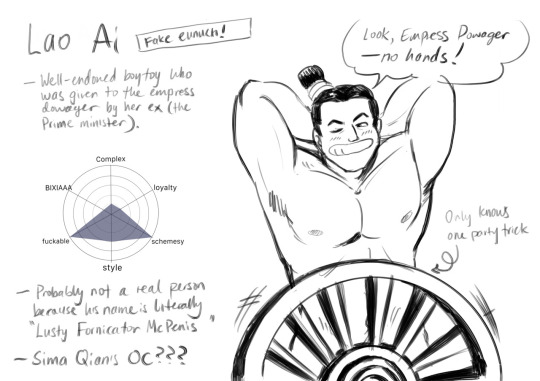
Warring States Period long story short, the PM is sleeping with the Empress Dowager, and he wants to extracate himself before her son (future Emperor Qin Shi Huang) gets old enough to find out. the PM finds her a suitable replacement, and the replacement is attached to a guy named Lao Ai. They pluck his beard and pass him off as a eunuch so he can sneak into the palace. Bing bang boom everyone's happy. This goes terribly wrong later, since Lao Ai tries to replace the emperor with his own kids and stages a failed coup. rest in pieces buddy...
it's very likely that Lao Ai was a ficticious character invented by Sima Qian, who will be appearing on this list later.
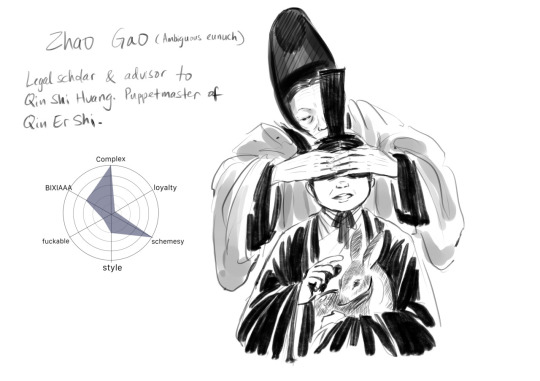
Qin Dynasty
Zhao Gao helped the first emperor of China conquer an empire, and administer it efficiently with his legal knowledge, but he also made the second emperor into a puppet, and weakened the empire for his own political gain. Max points of complexity, but you'd get more loyalty out of a coffee club punch card.
Before launching his soft coup, he decided to test the waters by bring in a deer and gaslighted the emperor by calling it a horse. the officials who were loyal to him called it a horse, and he executed the rest.

Han Dynasty Jiru, male favourite of Emperor Gaozu (Liu Bang), the peasant scoundrel who became the founder of the Han Dynasty. look, if the emperor has a harem of hundreds of women and you manage to catch his attention, you max out in style points. simple as. for most of chinese history it was fairly common for high-ranking men, especially eunuchs, to wear make up like powder and rouge, but i decided to give Jiru some women's huadia as well, cause he's a baddie.
Jiru gets a bad rap for alledgely distracting the emperor from his duties, but lets be real, history is written by civil officials who have no shortage of professional jealousy and gender/sexuality related prejudice towards eunuchs, since they were the personal attendants of royalty and could exert a lot of influence. plus Liu Bang was already pissing in the hats of confucian scholars, most of the poor work ethic is on HIM. Jiru should get credit for making him marginally less of a troglodite.
all in all he didn't try any court intrigue so extra points for loyalty and complexity. free my man >:( he's just a Han dynasty Monica Lewinsky who got slutshamed by jealous coworkers >:(
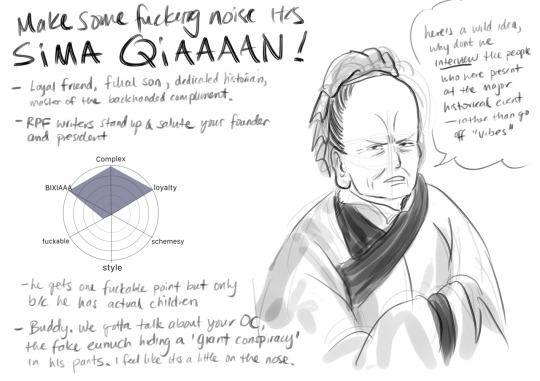
Han Dynasty
meet the father of east asian history, sima qian. half the people on this list can owe their placement here thanks to his extremely though history books "records of the grand historian"
history at this time was mostly "creative writing" and sima qian attempted to give the practise more academic intergrety, he went out and personally interviewed people, tried to get primary sources, and got rid of most of the more fanstastical aspects. however, he was not without his biases and some texts can be seen as allegorical/veiled insults towards the Han Dynasty, especially towards Emperor Wu. unlike most of the people on this list, sima qian was from the gentry and castated later in life as a punishment for treason. he was implicated after trying to defend a friend, and could not pay the fine to commute his sentence. the gentlemen at the time were expected to die by suicide rather than live with such ignimony, but sima qian chose to live so he could finish writing the history book his father started. the "giant conspiracy" joke explained: the chinese word for penis is a homophone for "conspiracy".
726 notes
·
View notes
Text
What's that? A real Naruto server in the wild??? With a focus on warring states characters and ships???? And a shrine to Kakashi??? You better click join!
Uhh what else can I say to convince you to join. We have channels for all flavors of early konoha ships (mdtb / iztb / hsmd / hsiz / hsmt / etc.) + lots of art channels to share your finished pieces, works in progress, and just cool art from others you found laying around. Plus wip channels, fic recommendation channels, channels for your naruto ocs, custom naruto emotes, etc.
Ooooo you wanna join soooooo badddd
#I couldnt find a photo of obito in a mcdonalds hat on google so the server profile photo is tobirama in a bowl of ramen for now#anyways ummmmmm join my server pretty please#naruto#warring states#naruto founders#idk what I can tag this with tbh. like. legally.#CAN i put ship names here or is that not allowed#I feel like its not allowed but also. Mm. Do I care.#mdtb#tbmd#iztb#tbiz#madatobi#tobiizu#hashiizu#hashimito#hashimada#birds rambles#naruto discord
156 notes
·
View notes
Text
i literally spend at least 2 hours a week just looking at various pictures of the terracotta army. utterly entranced. look at the details in the hair. you'd never see ANY of this when they're lined up in formation, but they're there.
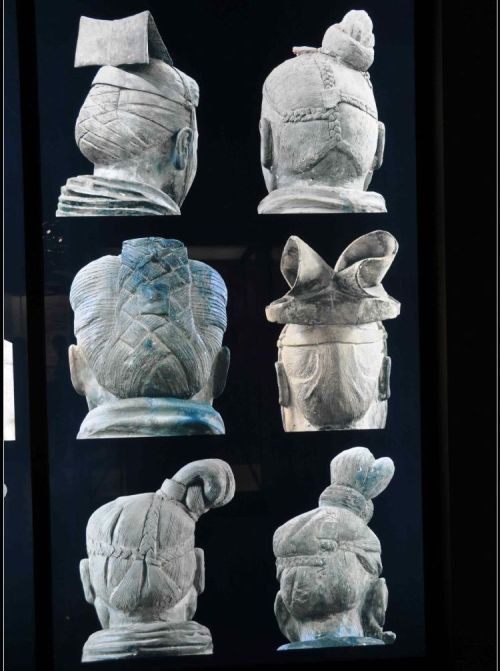
theres about 8000 of these guys down there, no two faces are alike. they're works of art. they're the manifestation of a cruel despot's delusions of grandeur. a talisman against the terrible inevitability of death, both pathetic and strangely pitiful. like watching a child clinging to his blanket, begging you not to turn off the light. they were a bunch of insignificant clay statues from a side chamber that was so small and unremarkable, no one bothered to write down the location. they were modelled after real people. their only purpose was to serve qin shi huang in the afterlife, so he could reign in heaven as he did on earth. now the emperor is just a ghost and his pawns are immortal. my dad and i visited them in the dead of winter, on a weekday, just so we wouldn't have to deal with tourists like us. the place had easily 500 people--not including the ones below ground. we traveled to xian via the old "green skin" diesel train. there are faster means, like highspeed rail but dad insisted i try the authentic way, the same way he would have traveled when he was my age it was also like, a quarter of the price but im sure that had nothing to do with it! back in the 80s carriages would get so packed people had to have their luggage passed in via the windows. as we chugged along, i read my book and my dad made us cup noodles. car is just a shortened version of "carriage", the word is the same but the mechanism is different. it's the same in chinese. i think if i told someone from the warring states period i could travel from the Kingdom of Qi to Qin in just four hours with my metal carriage, i'd be laughed out of town--or accused of being a spy and sentenced to 'death by carriage.' we hopped off the train at 4am and took a different "carriage." the taxi driver joked; "basically every dynasty put their capital in xian, stick a shovel anywhere and you'll turn up some national treasure or another." i wonder what it would have felt like to be a farmer digging a well and then out pops a remarkably realistic human head. statistical analysis show the soldier's faces bear a strong similarity to people living in the region today. the taxi stopped in front of a jewellery-hawking tourist trap and refused budge an inch until we went inside. did you know the terracotta soldiers were originally multi-coloured and painfully gaudy, just like the greek marbles? they were made assembly-line style. the arms and legs were made from the same workshops that made clay plumbing pipes and roof tiles. for quality control, the artisans were required to stamp their names. the workers who built these tombs were executed shortly afterwards, because only dead men can be trusted with secrets. qin shi huang's mausoleum is unlikely to be excavated in my father's lifetime, or mine, not unless i'm willing to take a BIG ONE for the team... instead of the tomb, they built some kind of qin shi huang-themed theme park next to it. not only was it tacky as hell the entrance fee was like $50. we went to the museum and i looked at bronze tools and pottery shards for three hours. look why can't we just crack the thing open i can't be the only one here whos dying from curiosity what if we all just took turns digging
#qin shi huangs terracotta army#warring states#qin dynasty#thinking about Her...<3 bronze tools and pottery shards <3#my writing
1K notes
·
View notes
Text
If the cuckoo doesn't sing...
This one may be a familiar story for those who are fans of Sengoku period.
Below is what is purportedly the original text of the story:
郭公を贈り参せし人あり。されども鳴かざりければ、 なかぬなら殺してしまへ時鳥 織田右府 鳴かずともなかして見せふ杜鵑 豊太閤 なかぬなら鳴まで待よ郭公 大権現様
Someone sent a cuckoo as a gift. If it doesn't sing: If it doesn't sing, kill the cuckoo - Oda Ufu If it doesn't sing, make the cuckoo sing - Hōtaikō If it doesn't sing, wait until the cuckoo sings - Daigongen-sama
It originated from the Kasshi Yawa 甲子夜話, a text written in the Edo period by Matsuura Keizan 松浦静山, whose real name was Matsuura Kiyoshi 松浦清 (1760-1841). It's a text that included various subjects, from contemporary incidents of Matsuura's lifetime, to legends and folktales.
There are various interpretations that could be made, since those lines are very simple. For example, while the standard reading for the Hideyoshi line is to associate it with diplomacy, some has interpreted it as a tyrannical force, making people obey by threat.
Regardless of what the original author intended those lines to mean, though, this was written in the Edo period. It may have very well been passed down through hearsay to boot. It only gives us an image of the perception that people of the Edo period have of them, and not an actual proper description.
Per the customs of the time, the three unifiers were not listed by their plain names, but their honorific titles. 右府 Ufu is the title designating the post of Minister of the Right, which Nobunaga did hold for a time. 太閤 Taikō is a title that is used to refer to a Kanpaku that has formally resigned, but still continues to hold influence. 豊太閤 Hōtaikō is the term used to refer to Hideyoshi specifically. 大権現 Daigongen is an abbreviation of 東照大権現 Tōshō Daigongen. When Ieyasu had died, he was deified by that name.
An interesting thing to note is that "hotototogisu" (cuckoo) is written with different kanji for each person.
Nobunaga's hototogisu is written as 時鳥. The kanji is translates to "the bird that tells time". Hototogisu are active in the early summer (around late May to June), so in olden times it was said the farmers star planting rice when the hototogisu sings.
Hideyoshi's hototogisu is written as 杜鵑. This was taken directly from the Chinese word for a cuckoo (Dù Juān in modern Chinese pinyin). It's originally referring to a different species of bird than the hototogisu cuckoo, but was adapted as such by the Japanese. It is a name connected to a legend where a Chinese king became a cuckoo after his death.
Ieyasu's hototogisu is written as 郭公, alternately pronounced as kakkou. This is the simplest one, derived from the sound of "cuckoo cuckoo" call. As with the above, this originally does not refer to hototogisu, but the Japanese adapted its usage because the bird is of similar species.
I have not seen any theories or analysis relating to why the kanji used to write them is different. Perhaps it's simply for aesthetic reasons.
#oda nobunaga#nobunaga oda#toyotomi hideyoshi#hashiba hideyoshi#tokugawa ieyasu#samurai#sengoku#sengoku jidai#sengoku era#sengoku period#warring states era#warring states period#warring states#japanese history
29 notes
·
View notes
Text

27 notes
·
View notes
Text
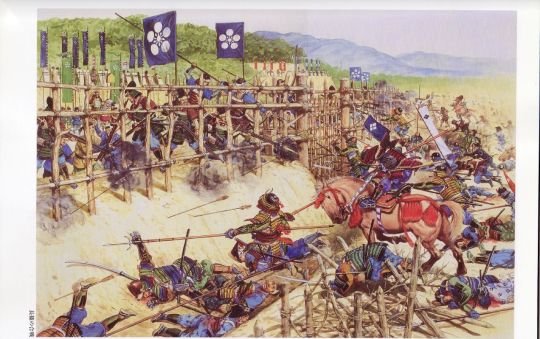




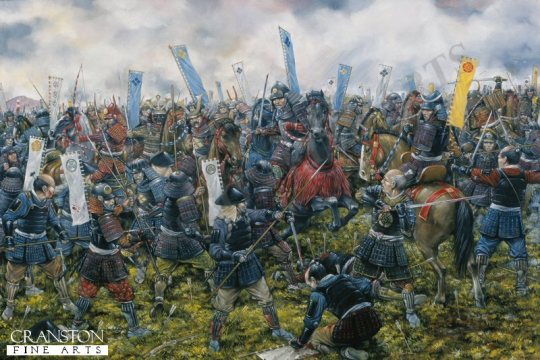

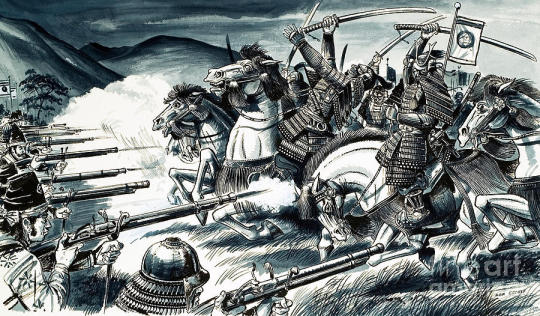
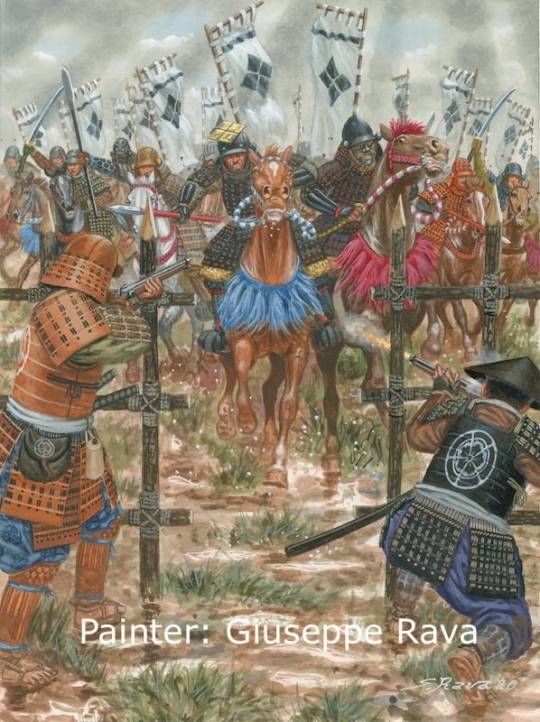

Ten Depictions of the Battle of Nagashino (1575)
Artists are identified in captions
#sengoku period#warring states#japanese history#samurai#oda nobunaga#tokugawa ieyasu#honda tadakatsu#takeda katsuyori#ashigaru#tanegashima#matchlock muskets#historical reconstruction#historical art#1500s#16th century#ritta nakanishi#angus mcbride#johnny shumate#osprey#richard hook#james field#brian palmer#howard gerrard#dan escott#giuseppe rava#gerry embleton#firearms#cavalry
25 notes
·
View notes
Text

Chapter 5 of Whispers Through Time is out now 🫶🏻
#hashisaku#hashirama senju#hashirama x sakura#sakura haruno#nara family#sarutobi family#warring states#pre konoha founding#time travel fic
8 notes
·
View notes
Text
Faction Train profile
As always constructive feedback is welcome.
Nature: Specially made Faction Shrine. Requires a secure spacetime location as an anchor, (usually a planned but unbuilt or later abandoned: line, station, or platform) otherwise it would be lost forever.
Use: Large scale or biodta analysuis heavy missions. Allows access to areas dominated by chi energy.
Consist 1 Russian locomotive class C 2-6-2. Livery: Completely black. 3 Faux Tsarist Pullman carriages. Livery: Black with red lining, everything than can be made black is. Decor: Brass lined walnut, heavy black out curtains, copper, slow speed air conditioning fans, inlaid bioplasmic screens. Coach 1: Kitchen and or biodata analysis laboratory. Coach 2: Lounge. Ursula's Control Center. 1st half: Navigation center, (Spacial teleprotation, transtemporal, and extra dimensional sensors). 2nd half: Stateroom, (Meeting area with a large mammoth's shoulder bone scrying table with a heavy wooden base and surface: pockmarks, knife scores, and dried blood brown stained cracks. One edge is crumbled, bubbled or boiled so that it seemed porous with the only chair being behind it). Coach 3: Brake Paurlor. Sleeper?
Locations & Routes Used The Necropolis Line, London. British Museum Tube Station, London. City Hall Station, Manhattan.
Misc Drives like a normal locomotive, (some compemnents have timetravely names eg: Temporal shafts). High levels of Chi energy can break an anchorage. Equipped with shields, (ie: Forcefields). Forced movement risks, "losing" it. Loosing contact with the Eleven Day Empire imobilises the train and requires it to go into lockdown to be retrieved. Can be, "grounded" by well defined temporal barriers or the ritual of mass murders in the surrounding area, (eg: The Boxer Rebellion). Attracts both railway workers and others despite it's phantom status. An important Military Wing asset. Has emergency sealing systems. Scanner capbilities: Biodata, teleportation, trans-temporal migration, and no extra-dimensional glitches. Has biodata autospy facilities and analysts. Likely .U.K. signal system headcode: 5F00.
Other ‘We’ve got enough power, full steam,’ he reported. ‘But the pistons can’t push the flywheels. There’s too much resistance.’ His gold-flecked fingers tapped on the screen until a web of fine structured lines overlaid the organic flux of the timestream, as if a spider had been particularly sober. He traced a line. ‘It’s these that are the problem. Never felt such well-defined barriers. Spatially, we’re good to go. Temporally? We’re screwed. Every angle, every slip or slide into other angles, is covered. This is tight.’
#Warring States#train#express#pullman#profile#faction paradox#doctor who#bbc doctor who#whoniverse#classic who#classic doctor who#nuwho#modern who#dw#dweu#dw novels#dw books#dw audios#fp#Big Finish#novelisations#eda#vna#the doctor#classic doctors#new doctors#book of the war#the book of the war#timelords#great houses
6 notes
·
View notes
Text

Palestinian activists get their message across on Londons iconic Tower Bridge landmark- one of the cities most historic buildings. We need a ceasefire now.
#london#palestine#free palestine#israel#gaza#free gaza#فلسطين#jerusalem#i stand with palestine#israel is a terrorist state#israeli war crimes
76K notes
·
View notes
Text
NICE
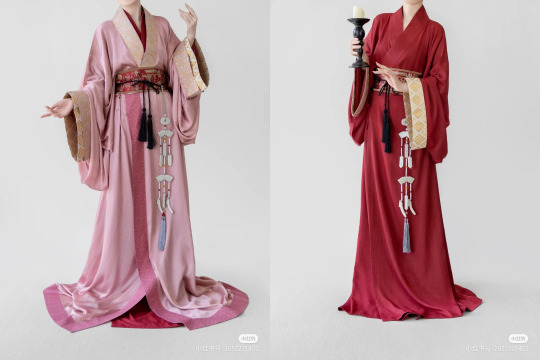

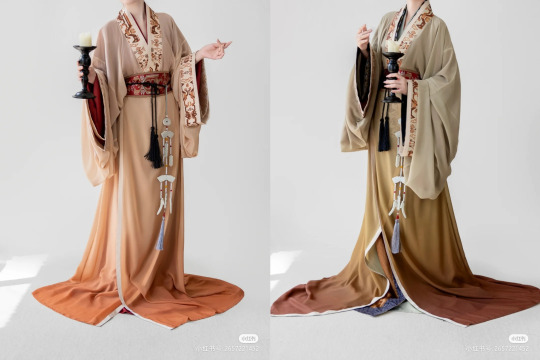

chinese hanfu in style of warring states period by 南山韵味
3K notes
·
View notes
Text


This is unconscionable. (more)
#politics#palestine#israel#gaza#polio#israel is a terrorist state#war crimes#childhood illnesseses#collective punishment#preventable illnesses#biological warfare#free palestine#🇵🇸
19K notes
·
View notes
Text
assorted art for my Qin Dynasty stories
i noticed that i tend to gloss over physical appearances when im writing characters lmao. here's what these guys look like, for those curious.
1. bargain bin prince



#1 the merchant lu buwei dressing above his station in black linen. #2 ying yiren arriving in zhao as a political hostage. his clothes reflect his status as a disposable middle-ranked prince. silk coat + black dye (both are expensive and reserved for nobility), his coat is short and has narrow sleeves, based on the terracotta sculpture of a qin offical. the hair bun is slanted right, a distinctive qin style. the right side was considered the "noble/upright" side. (look out though. for some inexplicable reason the archers all have their buns on the LEFT SIDE. and it has caused me much grief and suffering. i had to redraw SO MANY PANELS). #3 ying yiren clutching his mother's pendant, wearing a shiner, higher quality silk coat. the sleeves are wider and longer, and the hems are brocade + decorative sash + guan. I was on the fence about the guan. he is 14 years old in my depiction (15 by east asian reckoning) which is too young to be capped yet. i guess it works in the context of lu buwei being overly ambitious with his meal ticket.
18 notes
·
View notes
Text
Celebrating my 21'st birthday by posting an obnoxious amount of
Warring States Hatake OC things !

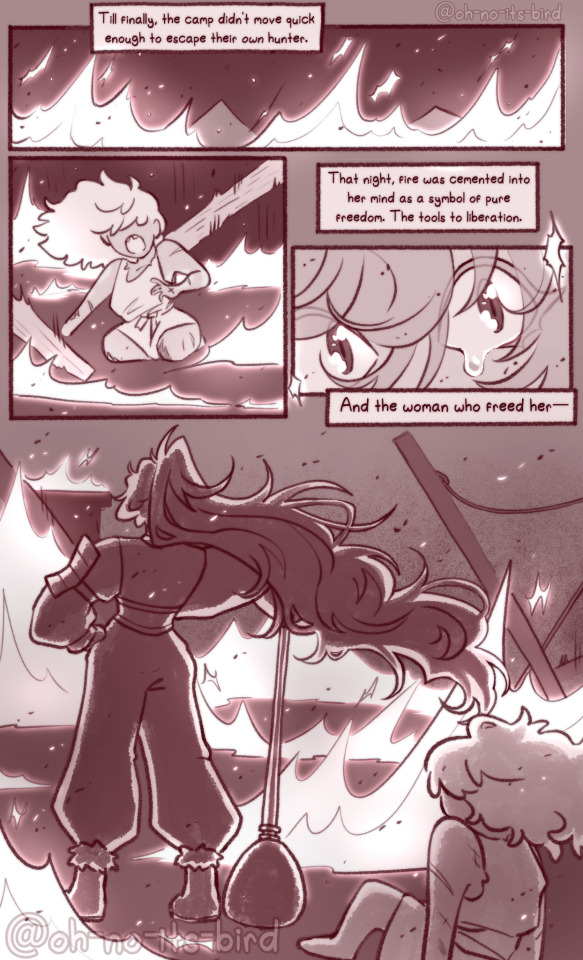
Continuing the warring states era Hatake oc train as I try to fill up all 21 slots for the clan !!! I honestly don't know if I'll make all 21, but I'd like to at least give them all names, just to make the world feel lived in. I might ask someone else to donate an oc or two in the future to guest star in the cast, idk
But anyways !!!! In a clan who loves to adopt, it stands to reason that they ofc have people among them who weren't born Hatake.
With that said: Pyromaniac explosion enthusiast Hatake who was a failed bloodline theft anyone ???

Both Sora and Tsuki are pretty fucking horrendous towards Tetsuo, but in large part it's Tsuki leading the charge. Sora follows his lead, as he's the first friend she made in the clan. They're honestly pretty close
Meanwhile: Sora remains the biggest Haruka fan ever. Being saved from the bloodline thief camp by the woman really cemented her in her mind as her hero.

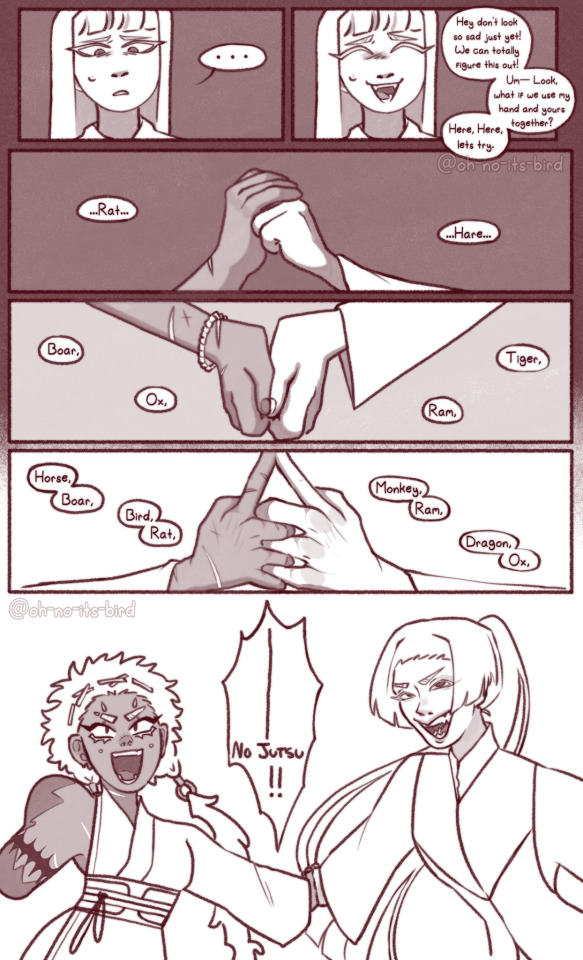
After Sora lost her arm at 12 when playing with an explosion seal she'd explicitly been told not to play with, Tsuki proposed they learn to do hand signs together.
Sora would eventually be able to figure out how to do pull off a jutsu with only one hand, but it takes a long time to get there— and even when she is there, it still takes longer than if she had 2 hands. Working with Tsuki, they can both pull off just about any jutsu as fast as any one person can. Faster, even
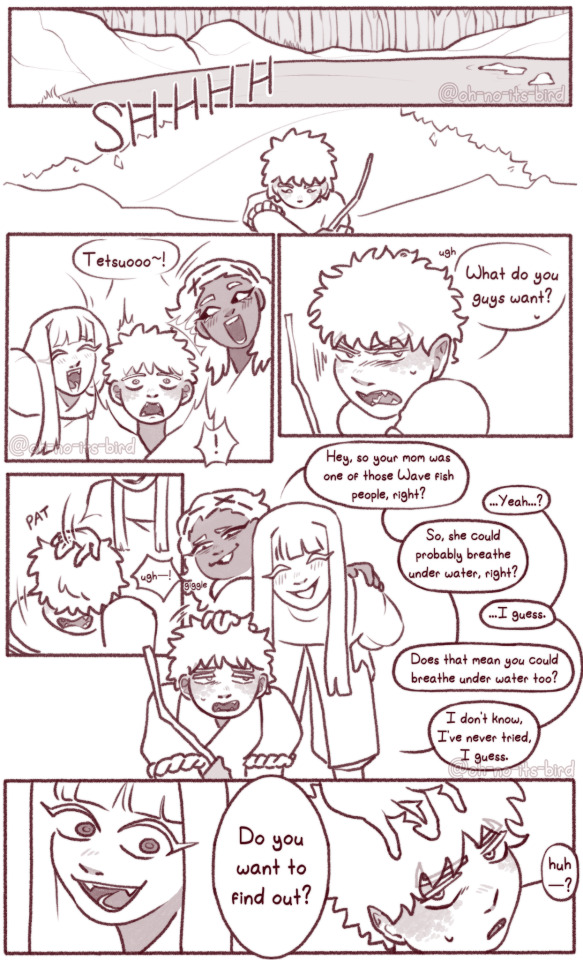
Top ten images taken 5 seconds before disaster...
I was gonna draw 2 more pages for this, of the actual drowning attempt, but I got tired and wanted to post this today so you get a summary of what comes next instead. (Maybe I'll finish drawing it and post it separately another day)
Tsuki and Sora bullied Tetsuo pretty relentlessly till the boys were about 13, when Tsuki took things a step too far and basically tried to drown Tetsuo. Tetsuo fought back, beating both Tsuki and Sora's asses pretty soundly— and catching Haruka's attention in the process.
Seeing Tetsuo fend off the other two made up Haruka's mind, and she declared he'd be her new heir. Which he... didn't actually want to be. Oops!
Sora was pretty effectively scared out of bullying Tetsuo any further, and Tsuki mellowed out a good amount— though he remained mischievous, but that was pretty standard for him.
The blue tint of Tetsuo's skin would fade only some months later as he grew out of his Hoshigaki traits and into his Hatake blood. This also helped to lessen teasing from the other kids, along with the whole "he's the new clan heir now" thing.
Good for him.
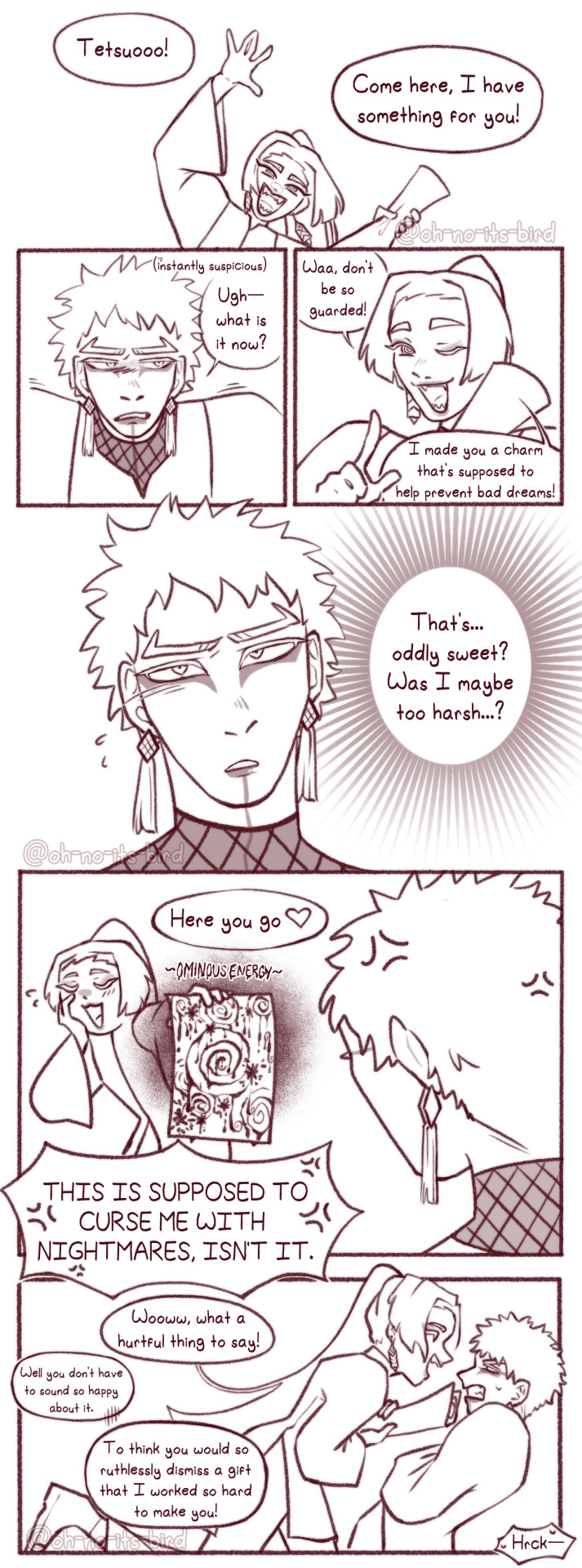
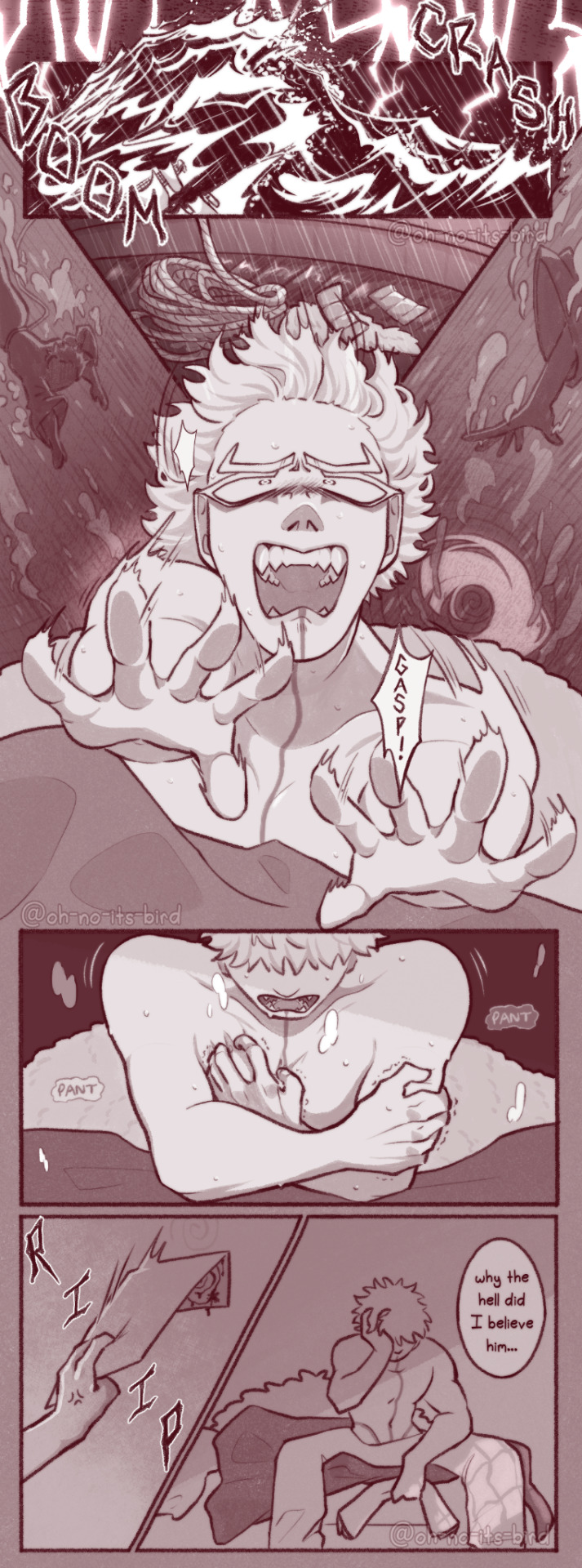
The next day Tetsuo is super pissy and sleep deprived while Tsuki is suspiciously smug and well rested. On the bright side, Tetsuo has officially learned his lesson and will now refuse to let Tsuki ever give anyone anything he's drawn ominous spirals on.
As adults, Tetsuo and Tsuki are... fine, honestly. They're friends, in a way. Might even be counted as close— or as close as you can be, with Tsuki.
The fact that Tsuki got himself permanantly posessed by an Uzu spiral demon on that mission gone wrong in Wave doesn't make things as complicated than you'd think. Tetsuo seems to often land himself in the position of acting as Tsuki (and often times Sora's) handler.
I had a few more things I wanted to draw, but ran out of time. I'll probably just try and draw and post it later. No Sora piercing lore, Daisuke introduction post or full Tetsuo drowning comic for you!!! (Yet)
Umm final thoughts:
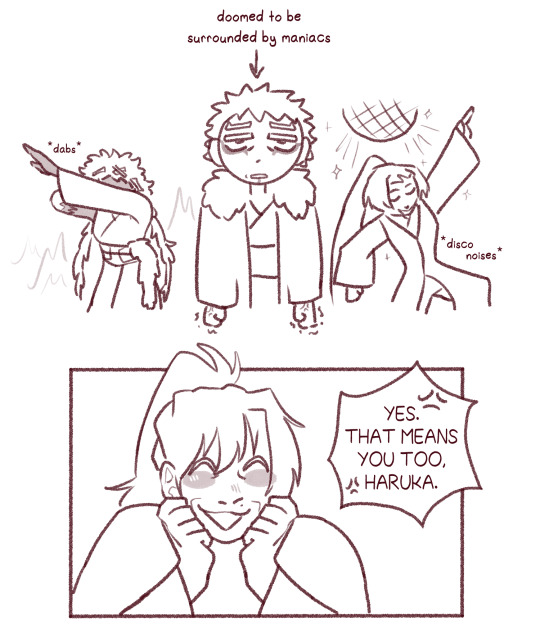
Tetsuo is doomed to forever be surrounded by maniacs
Early Konoha oc art pt. [1] [2] [3] [4] [5] [6] [7] [8]
#wolves of the woods#birds fanart#hatake oc#naruto#warring state era#naruto oc#naruto shippuden#hatake haruka#hatake sora#hatake tsuki#hatake tetsuo#oc#birds ocs#comic#original character#art#artists on tumblr#webtoon#warring states#naruto warring states#warring states era#hatake clan#hatake clan lore#hatake lore#birds art
111 notes
·
View notes
Text
-Bargain Bin Prince-
Lu Buwei was once a wealthy merchant who hailed from the kingdom of Wei. He made his living buying cheap and selling dear. One day, while on a business trip to Zhao, his fortunes took a change for the extraordinary.
He was taking his lunch at a wine house when he looked out into the street and saw a group of young noblemen playing a cruel and unusual game. They had bought some hot meat buns and were using them to tease a beggar—a painfully skinny youth whose clothes were so old and small his wrists stuck out a whole chi from their sleeves. First, they made him bark like a dog. Then they made him get on all fours and walk like one. After he had completed a few circuits, yipping and yapping, they finally made good on their promise and tossed a bun onto the ground. The young man pounced on it in a flash and shoved it into his mouth with both hands, nearly choking himself in his desperation to eat.
Lu Buwei realised with surprise that the boy was wearing pure silk. The fabric had once been top-shelf stuff, though now it had become hopelessly threadbare and dirty. What he initially took to be a beggar was more than what met the eye.
The merchant moved closer to the window. His wine had long grown cold. What began as morbid curiosity had been overtaken with eager fascination. His instincts were telling him that he was witnessing something important.
As the group of nobles prepared to ride off, the boy scrambled to his feet and obediently took the reins of the leader's horse; it belonged to a handsome young man wearing an expensive coat fringed with brocade. As this strange group passed by the window, Lu Buwei heard the rider crack his whip and call down in a sickly sweet voice, "Do pick up the pace, A’Ren.”
“Yes, Young Master,” the boy panted. His speech was refined, though his accent was rather hard to place.
Lu Buwei hailed a passing waiter and asked, “My good man, who was that gentleman in the fine brocade coat?”
“Sir must be new ‘round here,” the man chuckled, “that’s the Duke’s eldest son, Young Master Zhao.”
Heaven bless the gossipy wine sellers of the earth, Lu Buwei thought, “and who was the boy leading his horse? He doesn’t look like a servant.”
A sneer crossed the man’s face. “Oh, him? No one important, just some minor Qin prince.”
"A prince?”
“That’s right!” the waiter said gleefully, “you’d never guess from the looks of him. I tell you, he was real uppity when he first came here with his fancy airs and expensive clothes, but our Young Master Zhao’s been teaching him his manners. What an improvement that’s made! He’s proper regal now, ha ha!”
“Remarkable,” Lu Buwei murmured, stroking his beard, “how very remarkable.”
The merchant spent the next few days methodically panning the city of Handan for every nugget of information. The Qin prince was sixteen-year-old Ying Yiren, currently living as a political hostage in Zhao. Despite the deeply ironic name, which meant "extraordinary person," Yiren was only a concubine's whelp and barely worth the scraps he was fed. He had been the most expendable of his litter without being too lowly to offend his captors. That certainly explained why the duke's son could bully him so terribly. Like all currencies, princes depreciate rapidly in value when they’re over-minted, and the kings had a habit of pumping them out, two or three dozen at a time. They were not rare goods, so anything short of death or disfigurement was fair game.
As Lu Buwei watched this pitiful, downtrodden creature, his heart became greatly moved—moved by the allure of profit, that is. He knew from experience that if he invested in wheat, he could earn back ten times as much profit. If he invested in pearls, he would make one hundredfold. Just imagine the returns he could get on a prince!
Lu Buwei was a wealthy man with every worldly procession he could desire, but there was one thing money couldn't buy: respectability. Merchants were looked upon with the same warmth reserved for headlice and tapeworms. They were the most hated class of people, considered by many to be thieves in silk clothes, stringing their belts with other people’s hard work and contributing nothing of value themselves.
Lu Buwei thought this was a simplistic but not unfair assessment of his work. It was true; he grew no wheat, spun no silk, and mined no jade, yet he could profit from all these things. He was self-aware enough to pity the muddy, sun-burned farmers who spat at the ground as he passed. Farmers were the lifeblood of every nation; they were born in filth and broke their backs keeping the country fed, yet he could earn ten times as much for each jin of their wheat without ever picking up a hoe. He'd envy himself, too, were their roles reversed.
Yes, he could begrudge the farmer. But it rankled him to no end when it was the nobles who sneered at him from behind their sleeves. It got inside him, scratching and irritating like a grain of sand in an oyster. It felt unfair in a way that he could not quite explain. The only difference between himself and the average liege lord was that he had to work for his bronze, which made his money dirty, somehow—tainted by the sweat of his brow. Because he had started off as a faceless clerk in second-hand clothes, huddled together with a dozen coworkers, sharing the weak light of a single oil lamp as they copied tallies filled with goods they could never afford, this made him an unworthy pretender in their eyes. Working was both right and wrong; it seemed paradoxical. If he was up from sunrise to sundown, running around the city, balancing accounts and keeping abreast of the latest investments, it made him greedy. If he lounged about all day, reading poetry and taxing peasants at his leisure, it would make him respectable.
Fair or not, it was heaven's mandate, and every mortal was made for their role. Lu Buwei had no interest in flipping the world upside down on a whim. He was no axe-wielding giant or muddy-handed goddess, just a simple little sparrow who wanted to line his nest with something comfortable before he got too old and grey to fly.
Lu Buwei knocked on the doors of every associate in Handan and pooled together every favour that was owed him. This got him a meeting with Duke Zhao. The duke was not pleased to host so far beneath his station, but Lu Buwei had invited his most eloquent friends to speak for him; these were silver ingots, lacquerware and bolts of fine silk. In the presence of such esteemed company, the duke had no choice but to smile graciously and hold his nose.
The trick to climbing the social ladder was to start near the bottom and work steadily upwards. Once Lu Buwei had Duke Zhao in his palm, he was able to secure an audience with the King. All of his eloquent friends were invited, of course. As Master Sun wrote in The Art of War, 'Make a noise in the East and attack in the West.' Lu Buwei pretended that he was here to rub shoulders with the nobility. His real goal was to get close to Ying Yiren.
----------
[Lu Buwei befriends Ying Yiren. He convinces the Zhao King to let Ying Yiren stay at his house, ostensively as a live-in clerk. Lu Buwei tells Ying Yiren that he is extraordinary and deserves to be the next King of Qin. He plans on convincing the childless Queen to adopt Yiren as the heir apparent.]
The door opened in a haze of sandalwood incense, revealing a new set of clothes and a pink, freshly scrubbed Ying Yiren standing stiffly inside them. Lu Buwei eyed the prince critically. The extra layers gave him some much-needed bulk, but the best thing to be said about the boy at this stage was that he was not deformed or sickly. Fatten him up by five or six jin, double the amount of brocade, and he might eventually pass for stately.
“My Prince, you look splendid!” Lu Buwei turned to the servants, “doesn’t he, girls?”
“Oh, yes, My Prince!” they cried theatrically, “so handsome! So manly!”
Ying Yiren turned crimson and tripped on the doorsill. “Sorry! Sorry!” It wasn’t clear who he was apologising to: the girls, Lu Buwei, or the door.
Lu Buwei held back a sigh. He wanted someone malleable, but this was going too far! What happened to the stereotype of Qin men being war-loving brutes? How did he end up with this woolly little lamb?
A dull gleam caught Lu Buwei’s eye. Ying Yiren was still wearing his old jade pendant, which clashed terribly with the new black silks. It was the same one he had fought for so fiercely two months ago in front of the king and his court. It had been a rare moment of genuine courage, and Lu Buwei would be lying if he said he wasn’t curious to see the trinket that inspired such an outburst.
“Was this the pendant that Young Master Zhao stole from you?”
“Oh, you remember that?” Ying Yiren looked surprised, “I…Yes. It is.”
"How could I forget, My Prince? You conducted yourself so bravely that day. You should have seen the fear in their eyes!” Lu Buwei had been petrified of losing his nest egg before it hatched. Everyone else was probably worried the prince had contracted rabies and might start biting.
“My mother—I mean, Concubine Yu, gave this to me," Ying Yiren started twisting the red string between his fingers. “It was the last present I received before I left Qin, to grant me protection and to hasten my safe return. I don't know how she managed to afford it--"
“It must truly be a peerless item!” Lu Buwei had no stomach for this saccharine outpouring, “may I see it?"
Ying Yiren hesitated, “of course, Sir.”
Lu Buwei held the jade to the light and pretended to admire it. It was a genuine article, though that scarcely did it any favours. It was the cheapest grade of serpentine, with dull, muddy colours. One of the edges had been broken and clumsily fixed with flour paste, doubtless by the boy's own hand.
Ying Yiren hovered anxiously by his side. He all but snatched the pendant from Lu Buwei's hands, cradling it protectively like it was some precious heirloom.
"It has so much character!" Lu Buwei said heartily, which was not a lie. "Much more memorable than those common, gaudy baubles."
"Yes! It is, isn't it?" Ying Yiren pointed excitedly to the two weak veins of blue running through it, "The brown represents the earth, and these blue lines are the two great Chang and Huang Rivers! Isn’t it auspicious?”
“How extraordinary!” The only extraordinary thing here was that jade seller’s outrageous pitch, spinning such a fantasy to convince an ignorant concubine that this second-rate rock was a rare and marvellous item.
Lu Buwei brought forth the new jade pendant. It was much larger and thicker than that shabby embarrassment; the colour was such a pure snow-white that it seemed to glow faintly.
Ying Yiren looked ecstatic to receive such a princely gift. Then he looked torn. "I…I cannot accept this, Mister Lu."
"A prince needs to dress according to his station."
"I know! But I can’t just throw this away! This jade may not be grand, but it’s a piece of A’niang’s heart. She worked so hard for it!” Ying Yiren’s bottom lip started to tremble, “she was always working so hard for me. She always believed in me, even when no one else did, but I was too untalented to get Father's attention.”
Lu Buwei put on his most indulgent smile and coaxed, "My Prince, you have a noble heart, but the best way to honour your birth mother would be to fulfil your birthright rather than holding onto these material items. She would want to see you become a great man."
Lu Buwei held out the jade again; this time, Ying Yiren nodded minutely in acceptance. The merchant deliberately humbled himself by kneeling before the young man like a servant and personally affixed the pendant onto his belt. Ying Yiren helped him to his feet and said with wide, teary eyes, "Sir, you are truly a virtuous and loyal subject. I swear I shall never forget your generosity."
Lu Buwei muttered some humble platitudes and pretended to be awestruck. What pleased him most was not the promise of reward. It was the sight of Ying Yiren furtively tucking his A'niang's pendant inside his shirt, wincing a little when the cold stone touched his bare skin. This action was worth more than a hundred blood pacts or promissory slips. Lu Buwei didn't want a clever prince who had visionary ideas. He didn't want an ambitious prince who could soar high on his own merits. He wanted a sentimental one, blinded by gratitude, who held every scrap of kindness close to his breast.
notes: Blue and green were refered to by the same name "qing" 青 during this time period.
Bronze money was strung onto the belt, so i replaced the phrase “lining his pocket” with it.
This story is about 80% conjecture. The historical records said that Lu Buwei befriended Ying Yiren because he was an "extraordinary person" and it occurred to me that there could be a satirical twist to it, because Yiren literally translates to "extraordinary person."
this is my favourite quote. It just sums up poor Yiren's entire life so well.
“How extraordinary!” The only extraordinary thing here was that jade seller’s outrageous pitch, spinning such a fantasy to convince an ignorant concubine that this second-rate rock was a rare and marvellous item.
#my writing#warring states#qin shi huang#ying yiren#lu buwei#Edit: i cut the first bit out because i thought it would work better as a standalone
40 notes
·
View notes
Text
Dairokuten Maō in Cartas
Thank you to the helpful people who forwarded links to the digitized version of Cartas, I was able to identify some of the stories I found in Japanese articles about Luis Frois letters. The most important one being the supposed story of how Nobunaga called himself "Dairokuten Maō".
Letter from Luis Frois in the capital, addressed to Francisco Cabral, 20 April 1573:


There in the text you can see that he recorded of Shingen having called himself "Tendai no Zasu Shamon Shingen" in a letter, and to which Nobunaga responded with "Dairokuten no Maō Nobunaga".
This is a kind of unusual transcription. Most people today would write the epithets as "Dairokuten Maō" and "Tendai Zasu" respectively, without the "no" particle in the middle. I'm assuming this was just the way things are rendered in medieval Japan, which would have been different from modern Japanese.
Even if Frois had gotten incorrect information, I don't believe he would be making this up. He possibly had heard of it from rumours in town.
There's also a brief comment about how Nobunaga called himself the "living god (kami) and Buddha".
*) By the way, if anyone reading this can read Portuguese, can you please help confirm what is "paos"? The Japanese translation of "aspedras & paos" is "stone and trees".
Also, there was something strange when I was trying to check this out. The Japanese article I got said that this Dairokuten Maō story is in a letter from Luis Frois addressed to Antonio de Quadros in 1573. The problem is, in Cartas none of Frois's 1573 letters are addressed to Quadros. Frois's letters to Quadros were from 1571. It had some discussion about Hieizan, but not Shingen.
Eventually I did find the above quote among the 1573 letters, it's just that the letter is actually addressed to Francisco Cabral, not Quadros. I'm not sure if there's some kind of error in the Japanese translation, or the article writer is the one who misquoted the text.
#oda nobunaga#takeda shingen#japanese history#dairokuten maou#dairokuten maoh#sengoku period#sengoku era#sengoku#warring states#samurai#warring states era#warring states period#demon king of the sixth heaven#demon king of sixth heaven#luis frois#cartas#european account#resource
13 notes
·
View notes
Text

Using "Legalize" as a term to cover up the theft of people's homes and livelihoods is expected at this point from the NYT. The "free" press is complicit in the manufacturing of consent to not only destroy Gaza, but to also annex the West Bank. Free Palestine.
X: Assalrad
#social justice#current events#human rights#free palestine#gaza#free gaza#palestine#gaza strip#gaza genocide#gazaunderattack#save gaza#nyt#nytimes#stand with gaza#gazaunderfire#freepalastine🇵🇸#free palastine#from the river to the sea palestine will be free#important#fuck israel#anti zionisim#west bank#middle east#palestine 🇵🇸#israel is a terrorist state#israel is committing genocide#yemen#tel aviv#jerusalem#israeli war crimes
18K notes
·
View notes